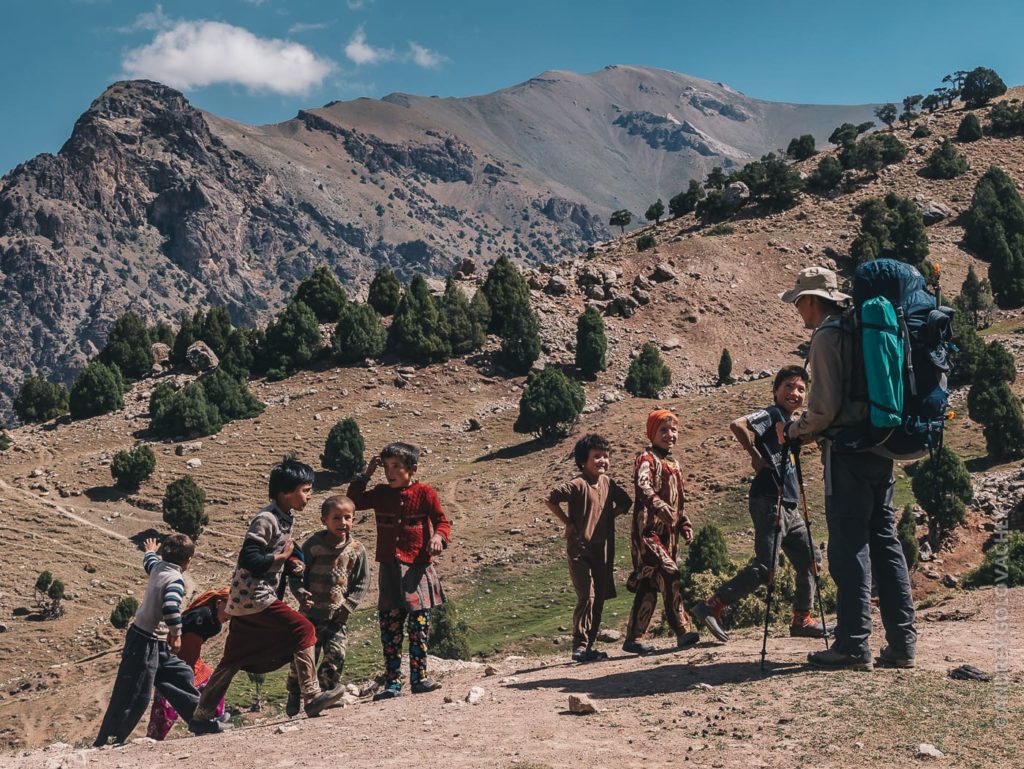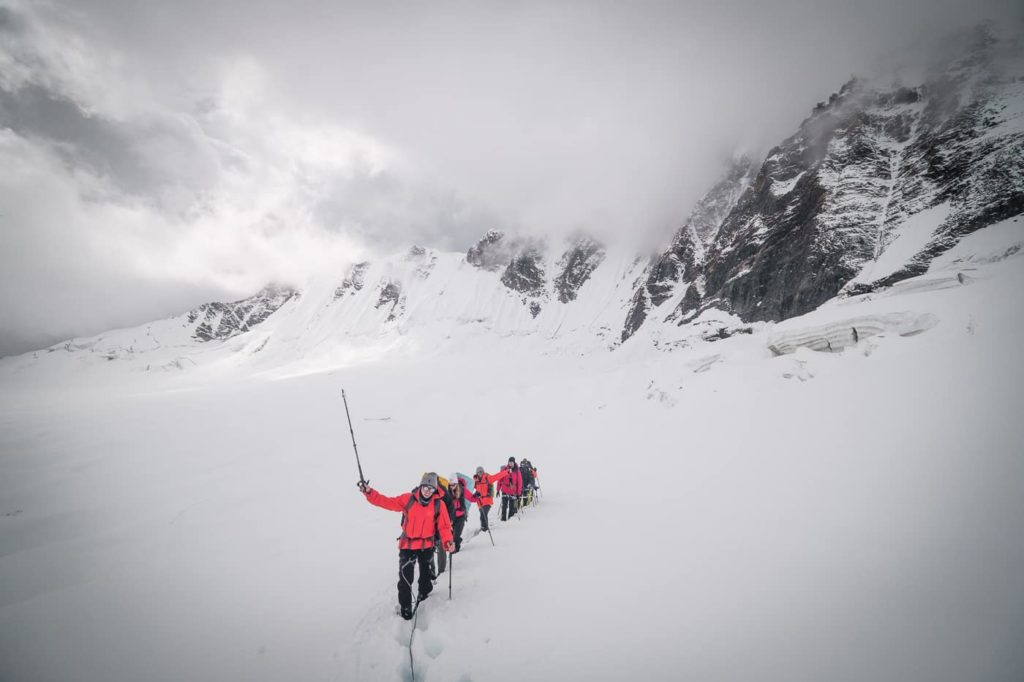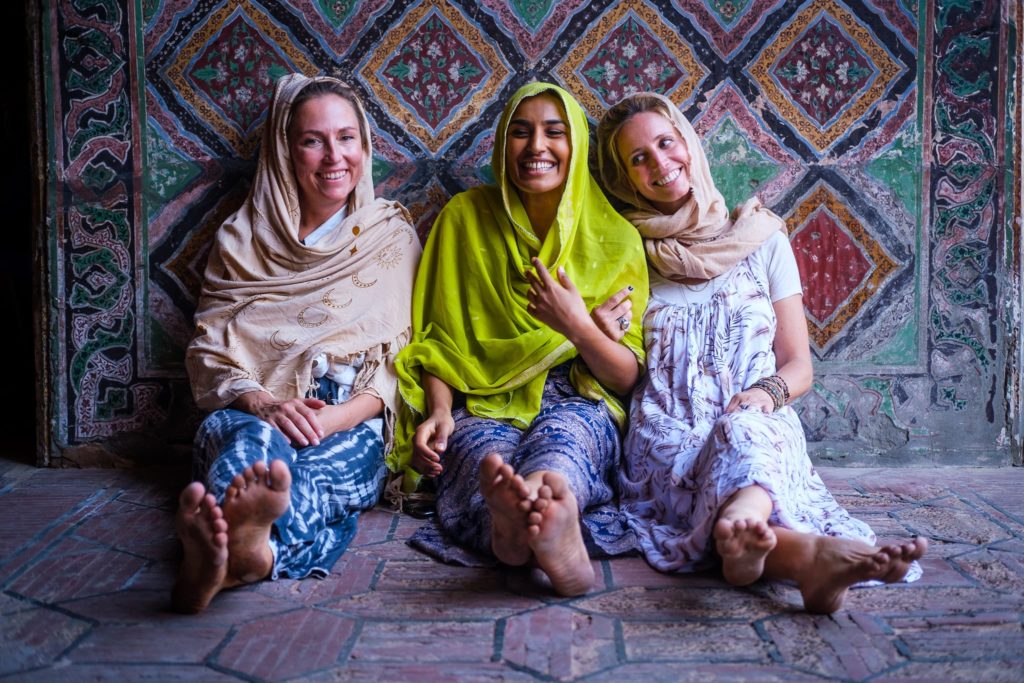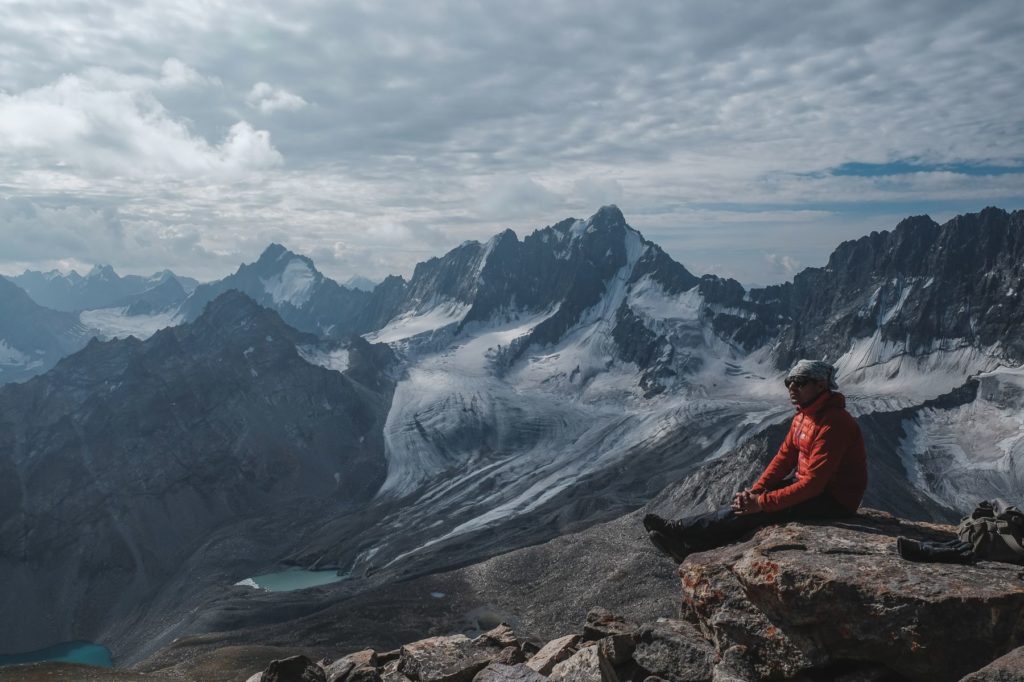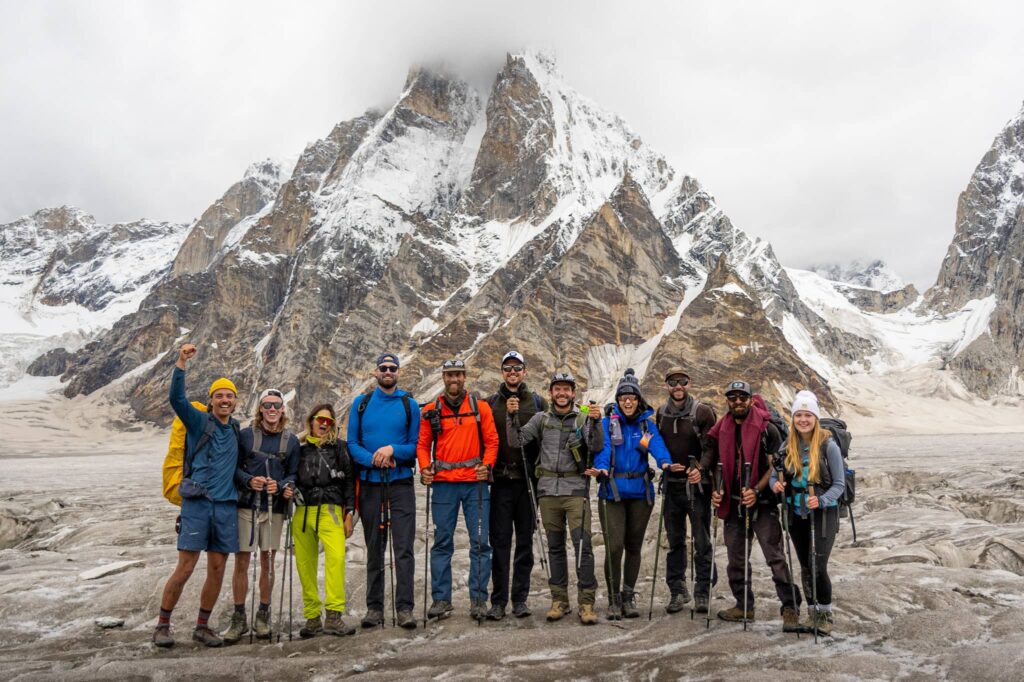With respect, we can connect. And when you’re deep in some offbeat, off-grid, thrilling adventure, that ability to connect and respect effortlessly keeps you safe. Even better, it enhances your travels.
Because very quickly, respecting local cultures and people leads to meeting new friends along the way.
This article will guide you through 11 ways to respect and connect with local customs, culture, and communities in your adventures. No matter how far off the beaten track you get!
You don’t have to take our advice to heart, but at least give it a sample. The world is already brimming with unfortunate souls that are not making an effort. We don’t want to add to this mess.
So let’s get out there and show the world just how awesome a traveler can be.
1. Do some research beforehand
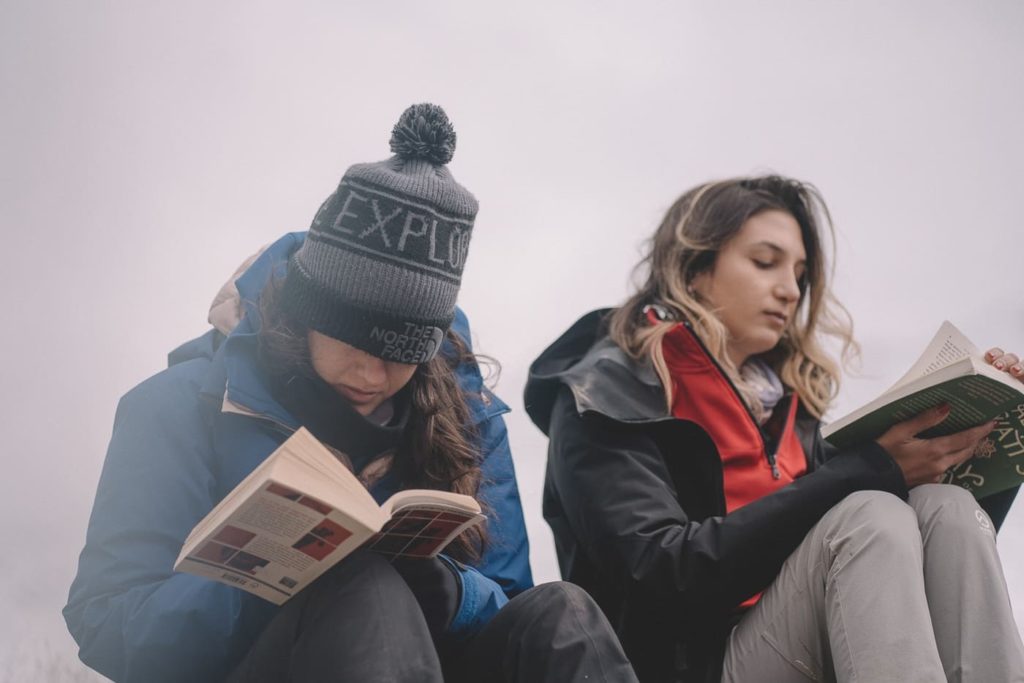
Always do some research before you arrive. Honestly, that’s important wherever you go, far-flung remote mountain village or not. Locals appreciate the tourists who make an effort more than the ones who don’t.
Research local customs… Local nuances of culture… Even the local language! Most of all, try to understand what the local culture is (and, particularly, if there are any social faux pas to avoid).
For example, across South Asia, including Pakistan and Nepal, it’s customary to use the right hand to exchange money, shake hands, and for other interpersonal moments. The left is reserved for the less—ahem—sanitary tasks. Locals won’t begrudge you if you get this wrong, but it’s appreciated when you get it right.
Not everything needs flawless execution. Nobody expects that, no more than when people visit your home. But it’s the demonstration of caring enough to try that will earn you friends.
2. Adhere to local customs

Respect and culture are inexorably intertwined, and local customs are the bridge between them.
Going off the last point, that handy tip about money exchanges is a great example of a local cultural norm to respect. It’s an important regional custom, but it’s not a dealbreaker if you mess up.
However, if we examine the culture of Pakistan’s Hunza Valley at a deeper level, we have other crucial considerations. Despite being a very progressive branch of Islam, modest attire (e.g. covering the legs and shoulders) is still important for both genders of these communities. Especially if visiting any mosques or sacred sites.
All of these local customs exist on a spectrum. For example, we’d still be much more confident wearing shorts in Hunza than speaking critically about religious affiliations. But really, why even risk it?
We’re here to connect, and the key is respect.
3. Learn (some of) the language
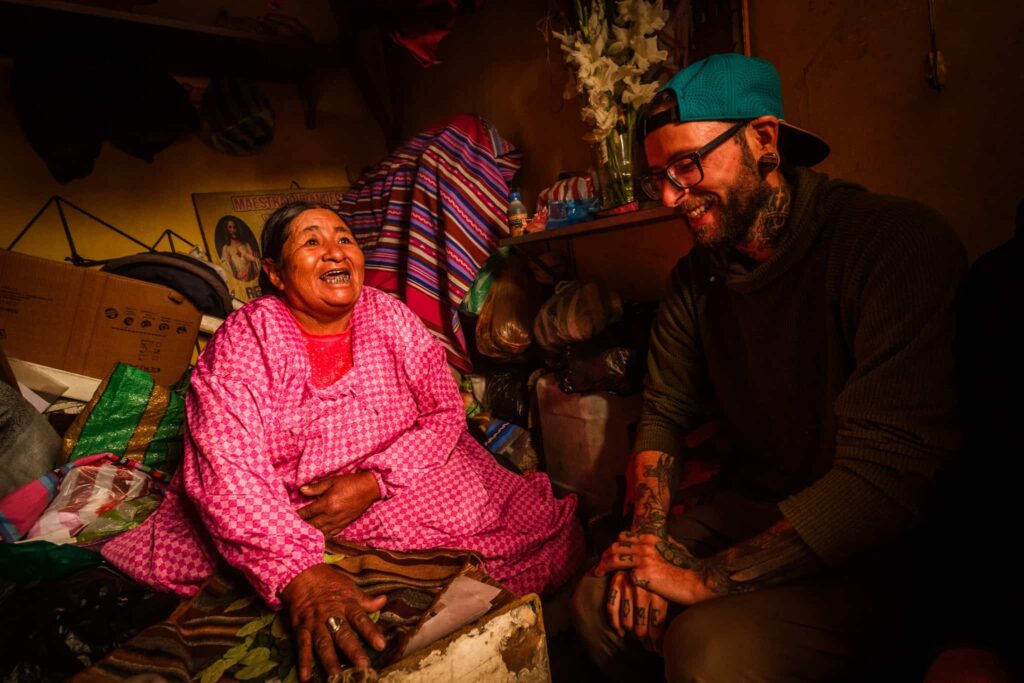
Always include some light language work in your pre-trip rabbit hole. Many here at Epic nerd out for languages, so this one is often fun for the team. In all honesty, learning the bare essentials of the language is 100% one of the best ways to respect local cultures upon your arrival.
Try learning 5-10 “polite” words first. These are the words that show respect and win you some smiles.
The first words we always learn for any new place we’re visiting are:
- Yes/no
- Hello/goodbye
- Please
- Thank you
- Excuse me
- Sorry
And then there are bonus points if you learn a fun slang phrase and how to order a chai! 😀
Let’s re-emphasize that learning some of the language is still sufficient; we don’t need to go overboard. Polyglots we are not, but someone can probably remember ten easy words in a new language.
Oh, and aim for good pronunciation too. Ask some locals when you arrive to give you tips (they’ll love it). We guarantee you that sounding like a local resonates as much as speaking like a local.
4. Get involved with local initiatives
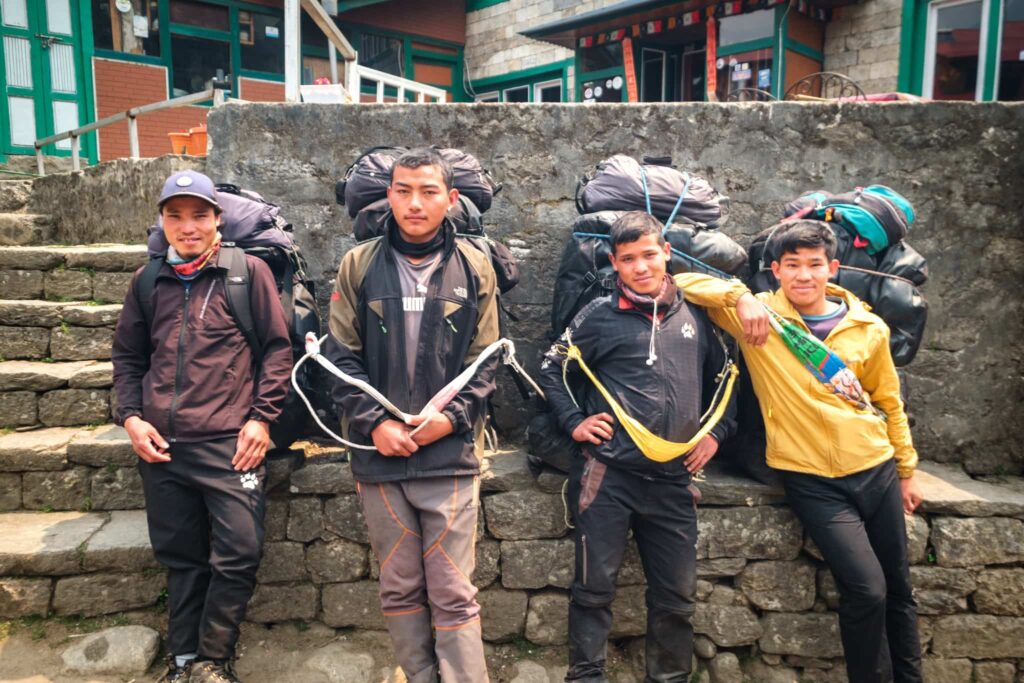
Even if it’s a short trip, do what you can. Sit and play with the curious kid. Donate to a local school or charity. Help the villagers with the monthly trash pick-up mission!
Or if you have more time, see what local ongoing initiatives are happening regularly. You can even link up with a proper NGO or volunteering organization for something more complex.
Often, we can get more out of these wholesome moments than from all the coconut-sipping sunsets in Southeast Asia one can stomach.
But this is about more than respecting local cultures. It’s about doing what we can to leave a better world behind us. We don’t always get to know what goodness evolved from that tiny little action we did.
But that’s just part of the fun.
5. Treat their home as if it was yours
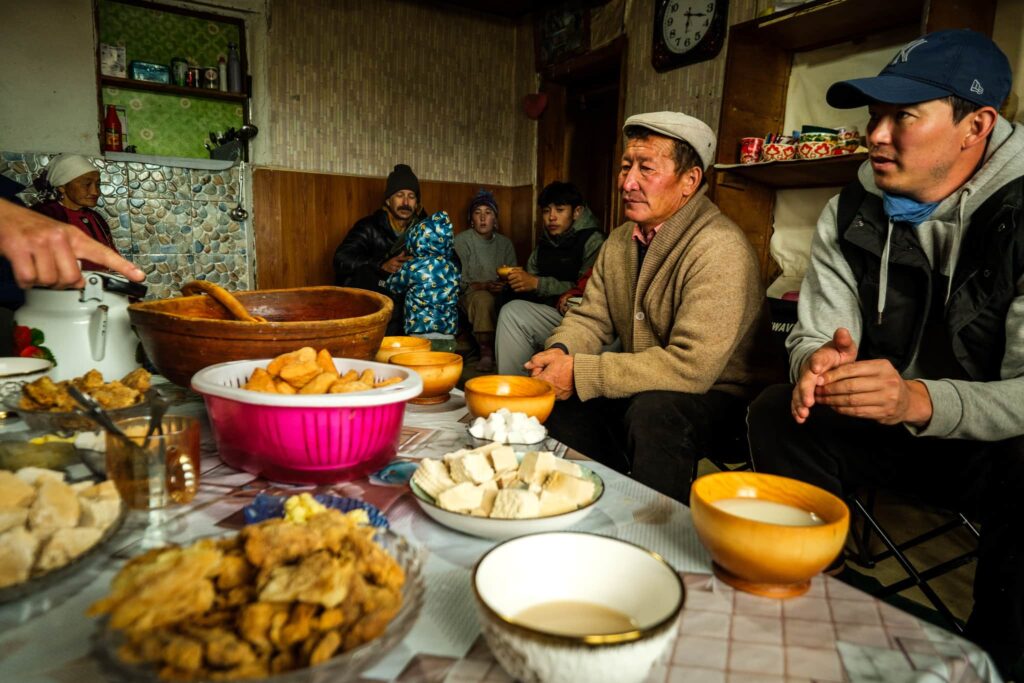
Always leave a place better than you found it. At the bare minimum, don’t leave it worse.
All those epic mountains… All that jaw-dropping scenery… That entire intricate tapestry of local culture and customs…
That’s somebody’s home.
We visit, but they grew up there. They wander those trails just the same as we do with our favorite haunts back home. That feeling that sometimes arises in our travels of deep connection: it can NEVER match the weight and profoundness of the history of someone’s home.
Respect local cultures, sure. But more than that, respect local homes.
Smile. Make others smile. Wipe your shoes. Leave nothing but good vibes.
We are a visitor in their home, and visitors show respect.
6. And leave no trace…
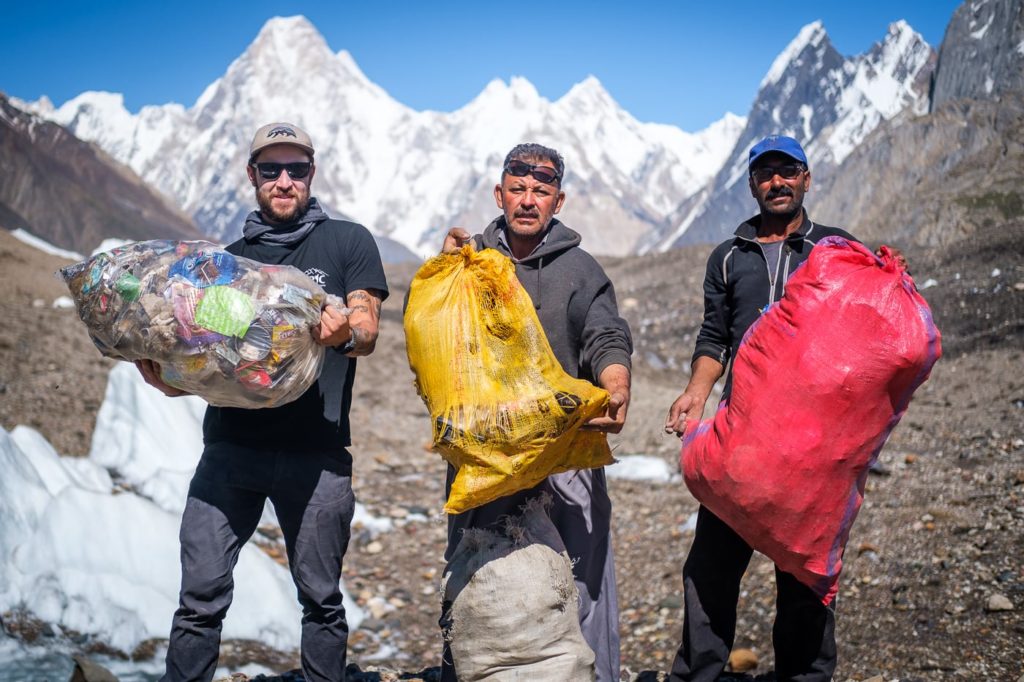
That’s the bottom line! Follow the 7 Leave No Trace Principles.
This is as much about respecting the planet as it is about local cultures. Epic Expeditions takes you to some of the most remote and untouched places still left on our beautiful big blue. Even if you’re traveling the planet on your own merit, you’re still traveling the planet.
So what’s the point if there’s no planet left to travel?
All we ask on all our trips and of all adventuring humans is that you leave no trace. It’s so important to us that we made it one of the four pillars of our mission statement.
Pick up your trash. Use the proper facilities. And if you see another trekker chucking rubbish on the trail, do the right thing.
7. Ask permission before taking photos
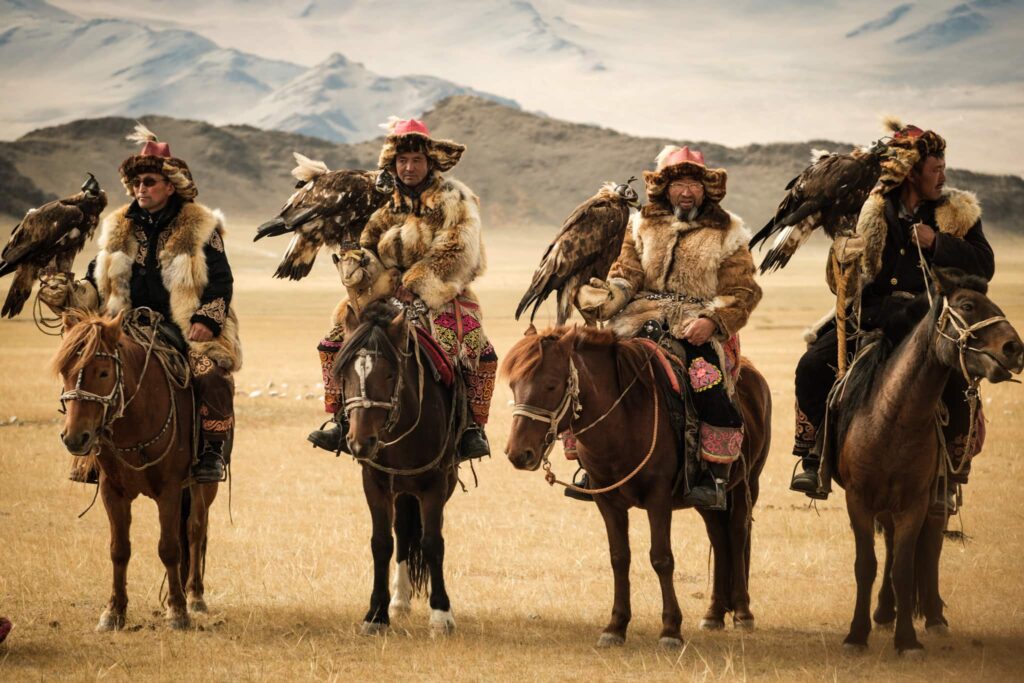
We love taking photos here at Epic. Few if any team members or guides hit the trail without a camera on them and even fewer pass up the opportunity to take a candid photo of an interesting place or person.
It’s incredibly tempting to not ask before taking a picture. But the truth is not everybody wants to be a photography subject. Many people in foreign cultures won’t necessarily even speak up when someone has crossed a personal boundary.
Ultimately, photography is still something that someone needs to willingly participate in and that means getting consent first.
Ask before taking photos of someone. A lot of the time, locals will actually say yes, and you’ll get an awesome interaction and some killer portrait shots out of the experience.
8. Be genuinely interested and ask questions
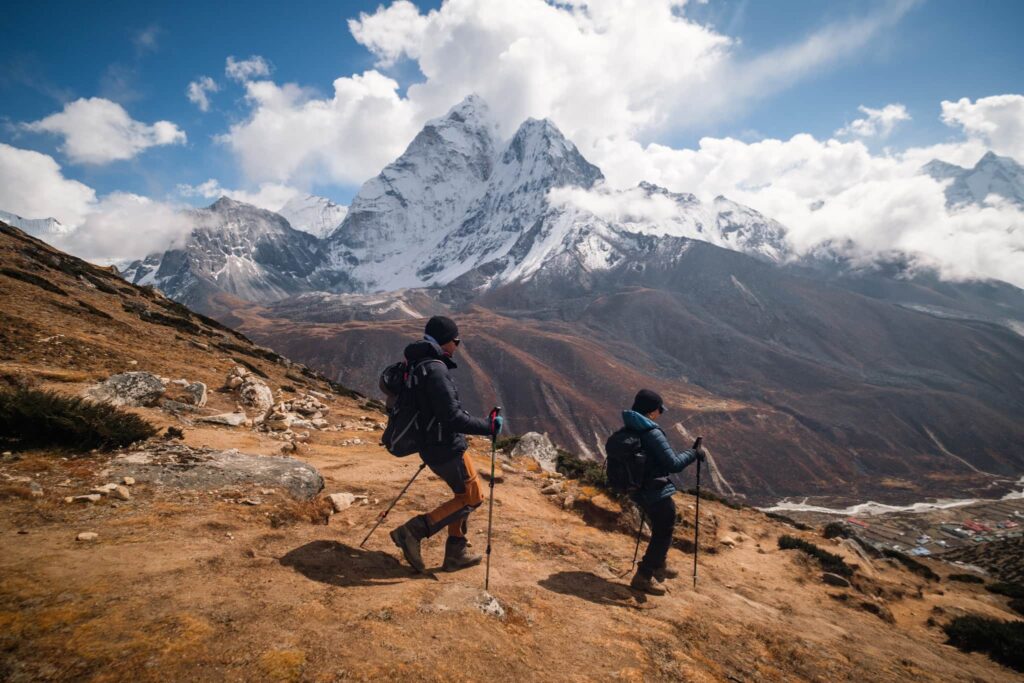
Curiosity is the running theme of the next few points. Ask questions. Be interested in the responses.
It’s genuine enthusiasm that underpins respect for other cultures.
As always, people very much appreciate the effort. It’s a lot better than the alternative. Frankly, it’s not great to feel like someone is fundamentally un-curious about your own home and culture.
But more than anything, it shouldn’t be performative. Uncovering these international beats of our globalized human narrative teaches us to be more complete.
Just be curious. Genuine curiosity will get you so far in this world. And above all
9. Be neutral in your beliefs and opinions
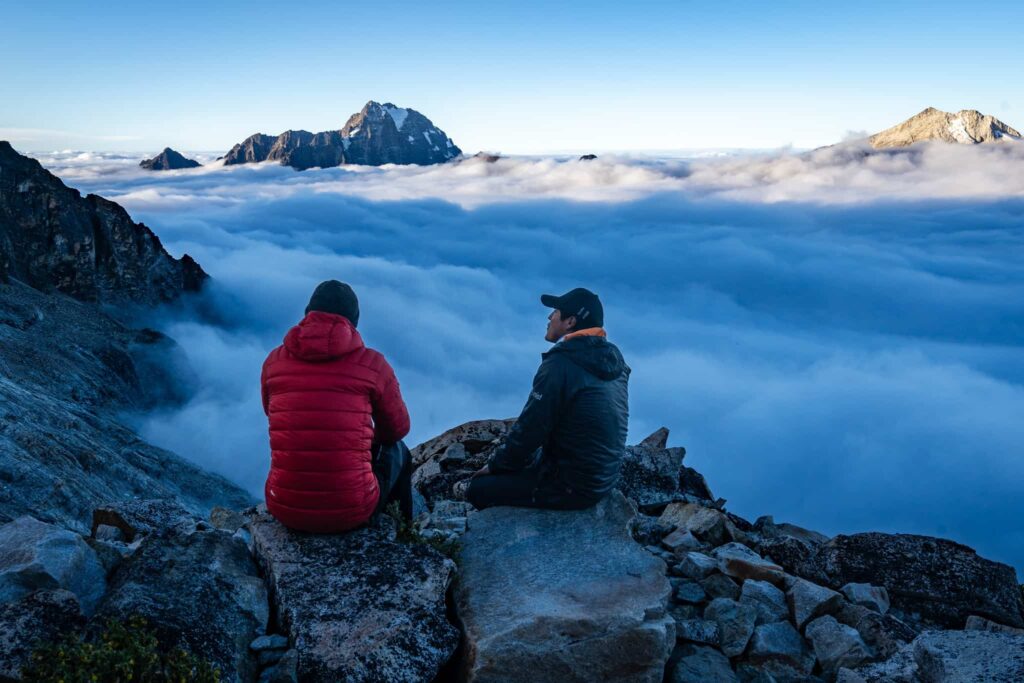
Neutrality can be a bit of a misnomer. There are so many things that exist in this world that it’s very difficult to stay neutral about all of them. Heck, there are many things about which we shouldn’t stay silent.
But one’s personal truth does not have to override another’s. So often, the true truth lies somewhere in between. Be curious; be absent of judgment; hold space for other people’s perspectives.
All these locals we meet— they came from a world we can never fully grasp. (And vice versa.)
Their perspectives are shaped by their history and stories… Their intergenerational victories and traumas… Their core understanding of the universe and god.
It’s all too easy to blunder around sticking our feet in our mouths about situations we can never fully empathize with. Empathy comes from shared experience, and there are simply some experiences we cannot all share.
So why wait for your turn to speak when you can just be curious and listen?
10. Give back to local communities
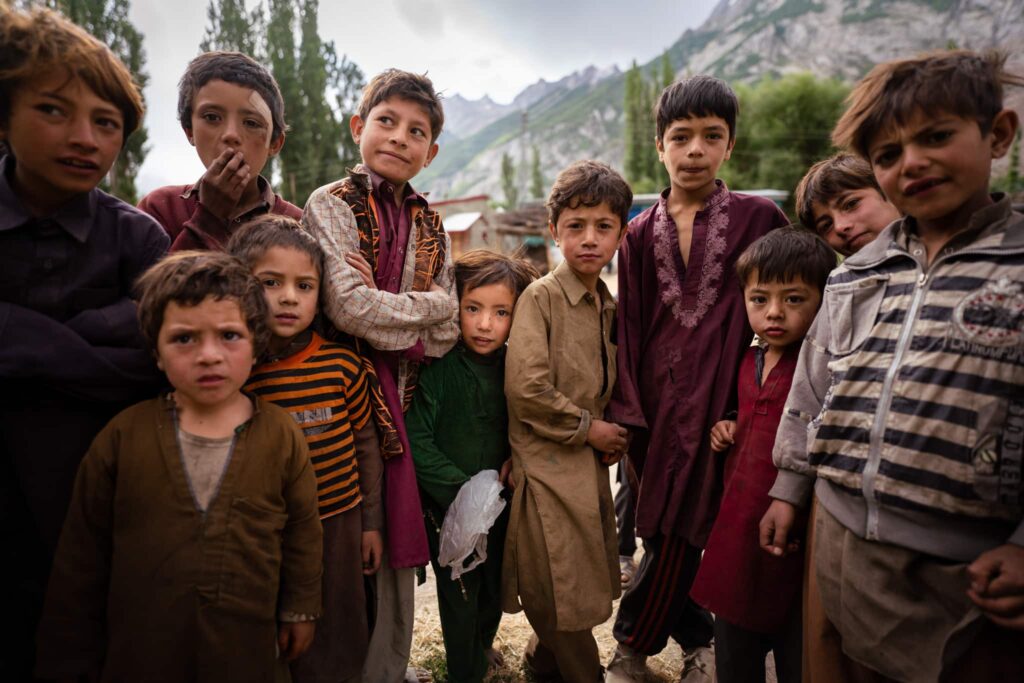
We touched on this with local initiatives, from joining in on the village activities to spending a moment with the locals. But even in the daily acts of life, remember to give back.
If someone is visiting, say, the Khumbu region of Nepal or able to afford the costs of a K2 Base Camp Trek, then on the grand relative scale of the world, they are better off than most. Simply remembering the privileges afforded us – e.g. economic, financial, geographic, etc – brings a huge amount of perspective.
In a lot of places in the world, the drives are long and things don’t run on time. Mistakes get made with your orders. Veganism is more of a loose guideline than a strict dietary requirement despite our best efforts to explain its meaning.
And sure, one might need to haggle sometimes, but do we need to haggle that much? And leaving a tip might seem like a small financial burden for us, but could help to feed an entire family or village during harsher times.
Giving back to local communities and cultures doesn’t mean dying on the hill of guilt – it’s just remembering that we have that privilege and adjusting our expectations accordingly.
Enjoy your time with the locals. Leave a good tip. Take it all in stride with a smile.
Combine those small acts of generosity with all the rest above, and you’re well on your way to respecting local cultures like a champ.
11. Partner with a reputable travel company
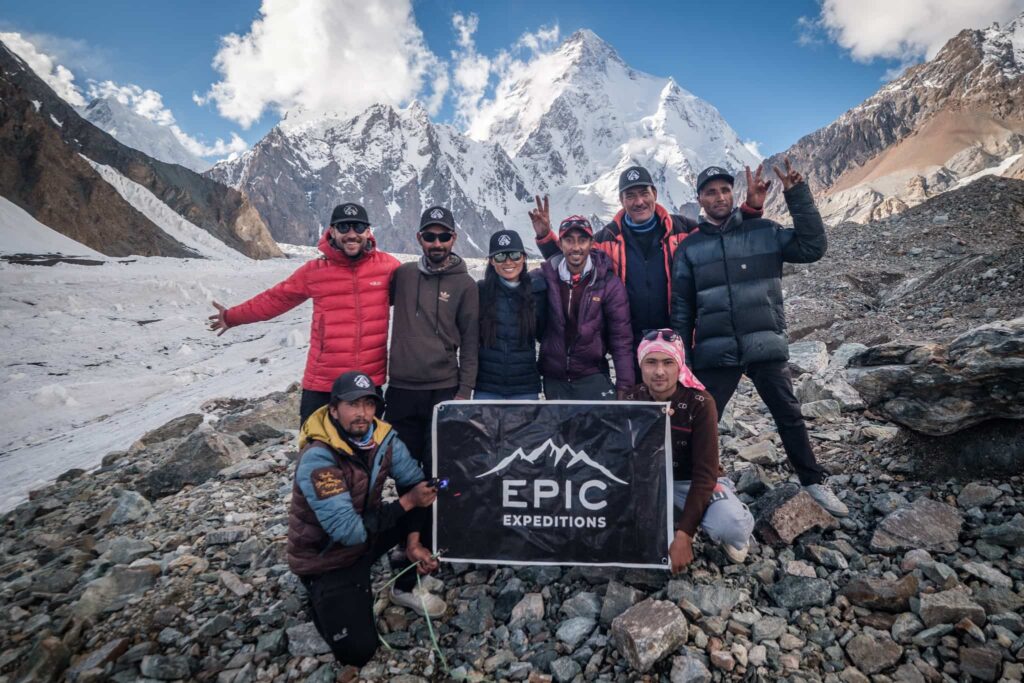
Not all travel companies are created equal. But the ones who go out of their way to respect local cultures, the destinations they promote, and the planet we walk… Well, they’re heads and shoulders above the rest!
A reputable travel company:
- Builds authentic experiences.
- Pays fair wages and stipends to local staff and partners.
- Deconstructs pesky negative stereotypes.
- And prioritizes eco-conscious tours.
By partnering with a company like that, you remove a lot of the stress associated with learning how to respectfully engage and integrate with a new culture. Plus, you know your hard-earned dollars are going right back into feeding a loop of sustainable tourism.
We might be biased, but Epic Expeditions is that reputable travel company. It’s evident from the testimonials from our clients. It’s evident from the entire ethos of our brand.
Epic Expeditions are epic for everyone. (Including our local friends and partners on the ground.) Booking with Epic means booking with respect.
Join us on an expedition. Make some friends. Experience Epic.

